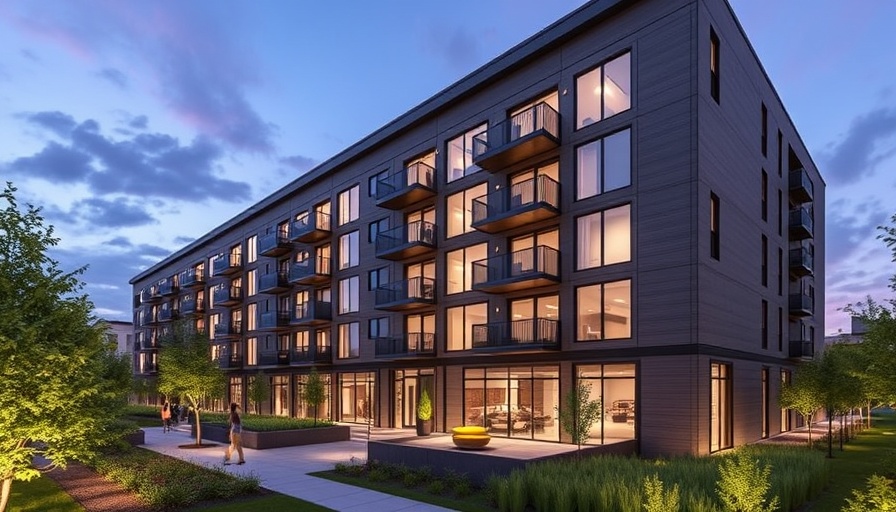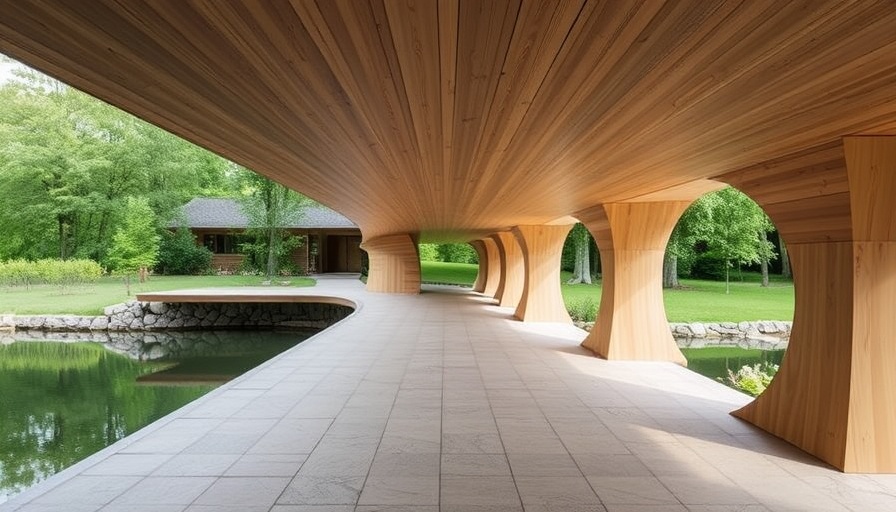
Redefining Urban Living with Sustainability
In an era where urban development often seems at odds with environmental sustainability, Optima's McDowell Mountain development in Scottsdale, Arizona, stands out as a beacon of innovation. Designed to be home to America's largest private rainwater harvesting system, this six-tower residential project aims to forge a new path in eco-conscious living. With a capacity to harvest 210,000 gallons of rainwater, the system not only reflects a commitment to sustainability but also addresses pressing issues such as water scarcity—a significant concern in the arid landscapes of the American Southwest.
Innovative Design Meets Environmental Necessity
The architectural design of McDowell Mountain is an impressive amalgamation of aesthetic appeal and functional necessity. The six eight-storey buildings, adorned with brown-tinted glass and cascading plants, are elevated on pillars, creating shaded spaces underneath for community interactions. This project, consisting of 1,330 condominiums, will feature amenities like rooftop swimming pools and running tracks, designed not just for luxuries, but as integral parts of a lifestyle aimed at enhancing wellness and productivity.
The Role of Rainwater Harvesting
By implementing a sophisticated rainwater harvesting system, the development will cultivate a self-sufficient greenery for irrigation, which is crucial in a state where drought conditions are a reality. Architect David Hovey Jr highlights that this water solution emerged during a severe drought, pushing the designers to ensure the project could remain 'water neutral.' This innovative thinking reflects a growing trend in architecture and urban planning that prioritizes sustainability and resourcefulness, which is particularly significant for populations such as digital nomads who may recognize the value in eco-friendly living spaces that support their lifestyles.
Impact on Local Community
McDowell Mountain's inception is deeply entwined with the complex water rights landscape of Arizona, where battles over water access have persisted for decades. By proactively incorporating water-saving strategies, Optima is not just enhancing its property value but supporting the community's resilience in the face of climate challenges. For digital nomads seeking remote workspaces, this development illustrates the importance of selecting locations that are not only comfortable but also aligned with sustainable living principles, impacting both personal well-being and the broader environment.
Lessons for Remote Workspace Design
As digital nomads, understanding the connection between our work environments and sustainability is crucial. The design principles exhibited by Optima can inspire those looking to create their own efficient remote workspaces. Whether it's incorporating more greenery, optimizing natural light, or using sustainable materials, the McDowell Mountain development serves as a case study in how thoughtful design can enhance productivity while being mindful of our planet's resources.
Future of Urban Ecology
The successful implementation of large-scale sustainability efforts, like those at McDowell Mountain, lays a path for future developments. This project not only sets a benchmark for eco-friendly residential living but also offers tangible solutions that others can replicate. It encapsulates a forward-thinking ethos where urban environments can be harmoniously integrated with natural processes, transforming how we view living spaces in urban settings.
As you contemplate your next workspace or residence, consider the ecological implications of your choices. Projects like McDowell Mountain are on the forefront of a movement towards sustainable urban living. The decisions we make today can pave the way for a greener tomorrow for both ourselves and future generations.
 Add Row
Add Row  Add
Add 




Write A Comment